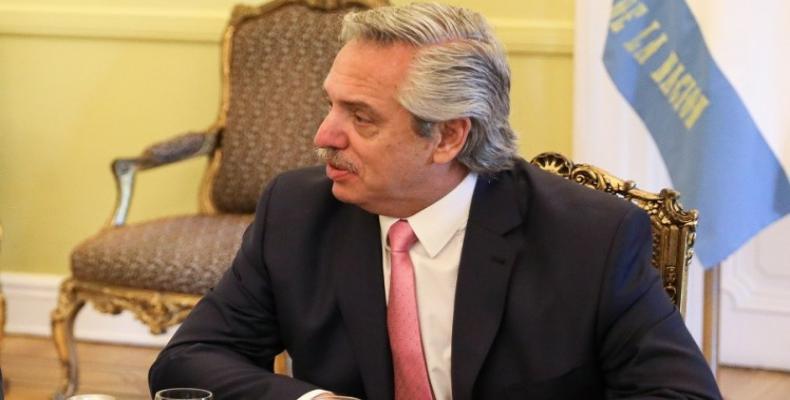Buenos Aires, December 17 (RHC)-- Argentina’s government will send its emergency economic bill to Congress Tuesday, which will include proposals to revise agriculture export, overseas transactions and personal property taxes, as new President Alberto Fernandez seeks funds to save a highly indebted and stalled economy.
The ‘Solidarity and Productive Reactivation Bill’ presents an array of measures that will be aimed, in the first instance, to bolster social spending amid recession and rising poverty, according to a spokesman for new cabinet Chief of Staff Santiago Cafiero.
The proposal includes an economic emergency act, which would give the government extraordinary powers to accelerate measures and reforms by decree without going through the parliamentary process.
The center-left president, who took office last Tuesday, on Saturday announced also that the bill will “remove an export tax limitation [for agricultural commodities] of four pesos per dollar that Macri had imposed when the dollar was worth half that today.”
This will boost the tax rate for soybeans, soy oil, and soybean meal to 30 from about 25 percent and lifted the duty on corn and wheat to 12 from around seven percent. While export meat was reduced from 12 percent to nine.
As Argentina is grappling with annual inflation close to 55 percent and an economy that is expected to contract for a third straight year in 2020, the country is in dire need of funds. Fernandez’s economic team is already negotiating with the International Monetary Fund (IMF) and other creditors on new payment terms on around US$100 billion in debts, which were acquired by former right-wing President Mauricio Macri.
Another proposed measure is the reemergence of the so-called ‘tourist dollar’ tax. The policy was first enacted in current Vice President’s Cristina Fernandez de Kirchner’s second presidential term, under which foreign transactions were charged a tax over the official rate amid the nation’s dwindling international reserves.
The Fernandez government is considering an around 30 percent tax on international purchases made with credit cards, including airline tickets, hotels, and payments on platforms such as Netflix.
"The tax that is going to charge purchases abroad has a solidarity and contributory logic," said Fernandez’s Chief of Staff, who noted that it aims to "take care of the dollars" that the economy has and "revive the local tourism industry."
Also, an increase in personal property tax is expected, so far set at between 0.25 and 0.75 percent for assets exceeding two million pesos (about US$33,000), with a surcharge special about goods abroad. The increase would go be from 0.25 to 0.50 and 0.50 to 0.70 percent respectively.
The government included a labor reform which would make the employer pay two extra salaries if the worker is fired without just cause. The measure will be valid for 180 days in order to curb unemployment. “It responds to the need to set a starting point and at the same time stop with layoffs,” the Argentinian president said.
Other measures will introduce a revision of public services rates, total or partial exemption of taxes for small businesses, automatic return of purchasing tax to retirees, the declaration of a health emergency to push forward with vaccination programs, and a general analysis to increase workers' salaries, pensions, and social spending.


